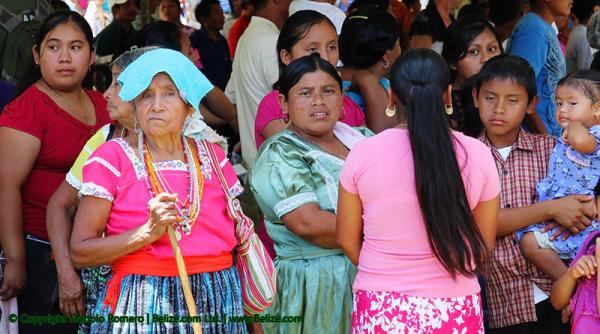High Court Orders Belize to Recognize and Protect Maya Traditional Property and Rights

On April 19th the Caribbean Court of Justice announced its judgment affirming the 2013 holding of the Court of Appeal of Belize that the Maya indigenous people of southern Belize have rights to the lands they customarily have used and occupied for many generations.
In the judgment, the court affirmed that these traditional land rights, belonging to 38 Maya villages in Belize’s Toledo District, constitute property as defined in the provisions of the Belize Constitution that generally protects property free from discrimination.
The court's judgment, which was entered by consent of Maya parties in the case and the Government of Belize, will require the government to demarcate and officially register Maya communal lands, and protect them against incursions by outsiders. The Court accepted the government’s undertaking to adopt the necessary “legislative, administrative and/or other measures” to that end and, in the meantime, to refrain from and prevent acts that would adversely affect Maya land rights. The Court also ordered that, in 12 months, both the Maya communities and the Government present a report about implementation of the judgment.
"This judgment of the Caribbean Court of Justice sets an important precedent worldwide, building upon ever-greater recognition of the rights of Indigenous Peoples internationally," said Professor James Anaya who has been involved with the case since 1996 as the chief architect of the legal strategy. Anaya is an internationally known legal scholar and advocate and was also the United Nations Special Rapporteur on the Rights of Indigenous Peoples from 2008-2014.
Anaya explained that the judgment "reinforces the international standard that Indigenous Peoples have collective property rights based on their own customary land tenure systems, even when they do not have a formal title or other official recognition of those rights, and that states are bound to recognize and protect those rights."
He further noted that, “the case sets an important precedent for understanding that such traditional indigenous property rights are protected by the constitutions and laws across the world that generally protect property.”
Anaya also pointed out that the Caribbean Court of Justice decision followed a 2004 report issued by the Inter-American Commission of Human Rights (IACHR) that found Belize in violation of its international human rights obligations for failing to recognize and protect Maya customary land tenure. Although the Government mostly ignored the IACHR findings, the same report helped bolster the Maya claim and was referred to in lower court decisions that were then affirmed by the Caribbean Court of Appeals.
For representatives of the Maya communities that have been fighting for their rights for decades, the recent court decision, which was consistent with the IACHR findings, was very good news.
"We have had to grovel before these courts for more than 30 years," said Alfonso Cal, the top traditional leader for the Mayan people.
"But now we are happy that the highest court has stood again with my people by putting Belize on the road towards the right side of history," Cal asserted.
Cristina Coc, a spokesperson for the Maya Leaders Alliance said that the court's judgment provides Belize with another opportunity to rewrite its relationship with the first peoples of the country. She stated that the struggle of the Maya people was also for all of the marginalized people of Belize and the world.
"We're hoping that the courts in this country and elsewhere will do the same thing," Anaya added, noting also that many courts throughout the Americas are looking at precedents in dealing with indigenous rights to territory and resources.
"Belize is in a crossroads right now, and it has a chance to reverse the history of denial of rights to Mayan people," he said.
"And it is incumbent upon international agencies and donor countries that they support Belize as they move forward with judgments to recognize Mayan peoples rights," Anaya said.
Read more at http://indiancountrytodaymedianetwork.com/2015/05/15/high-court-orders-belize-recognize-and-protect-maya-traditional-property-and-rights